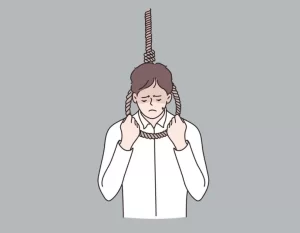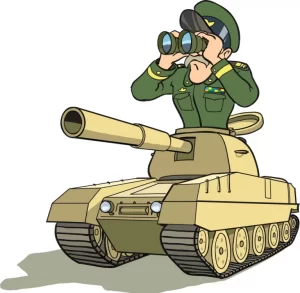03-03-2022) समाचारपत्रों-के-संपादक

Date:03-03-22
Don’t Abstain
Even cold calculations of national interest indicate that India’s position on Russia should change
TOI Editorials
The war in Ukraine is getting uglier. Civilian targets are getting hit and civilian deaths will likely mount. Vladimir Putin, denied a quick victory, will almost certainly not pull back now. He’s already, with jaw-dropping recklessness, rattled the nuclear sabre and his foreign minister has warned of World War III with nuclear weapons. As the situation turns graver, as human costs of the invasion mount, countries previously staying out of punitive actions against Russia are now changing their position. Traditionally neutral Switzerland has frozen Russian assets. Finland, another country with non-aligned traditions, is sending weapons to the Ukrainian resistance. Turkey has limited access to Russian warships to the Black Sea. Russian energy-dependent Germany is already planning for scenarios where Moscow weaponises the supply of gas to Europe’s largest economy. At the UN, criticism against Russia is growing.
So, the question comes, can India continue to hold on to its ‘abstain’ position indefinitely? All the arguments made by those who advocate a ‘neutral’ position are by now familiar. The question about that stand is can it or should it persist despite Russia’s current actions and its increasing isolation, Putin’s dangerous gambles like putting nuclear weapons on alert, not to mention an economy that can get seriously hurt. There’s also the issue that India’s citizens are in grave danger from Russian assault. Clearly, the ground has shifted. But as always in geopolitics, the clearest and best test is cold calculations of national interest.
The ‘abstain’ position also fails this test. Part of Putin’s continued belligerence is based on the assumption of finding considerable comfort from China. Beijing is a canny player, and that’s why it hasn’t quite stood beside Moscow. But it won’t at all mind a resource-rich but savagely weakened Russia seeking its help – there’s much that Beijing can extract from such a relationship. What does that tell India? Is that the Russia India wants as a strategic partner in the years to come? China is India’s biggest threat and any country that depends on China must surely be a less-than-ideal strategic partner. India needs America to counter China. If Russia continues as it does, how long does New Delhi have before murmurs in Washington grow about one of its Quad partners? And how will we diplomatically counter such concerns? As for Russia’s response to India changing its stance, Russia needs India’s orders as much as India needs Russia’s weapons. Times have changed. So must India’s diplomacy.
![]() Date:03-03-22
Date:03-03-22
Make India Inviting For Global Talent
Close the gap in global best-practice adoption
ET Editorials
India’s ability to draw foreign executives to work in the country took a knock after Ilker Ayci, who turned around Turkish Airlines, declined the Tata Group’s offer to head Air India. Having acquired the national carrier minus its accumulated debt, the Tatas are in a hurry to improve the airline’s financial metrics. Ayci’s polite refusal, following questions over his proximity to Turkey President Recep Erdogan, will lead to another round of search for Air India’s CEO with demonstrated capabilities in turning an airline around. This is not the first time an offer by a storied business conglomerate has been turned down by a foreign executive. Last year, Marc Llistosella, who was working for Daimler, declined to join as CEO of Tata Motors, which has since been running without one. Whichever way one looks at it, this is a bad advert for India as a place for doing global business.
India Inc has had mixed results when it goes shopping for managerial talent abroad. This is in sharp contrast to the executives it exports who have been honed by global companies to take on leadership roles. Even with their cultural affinity, managers of Indian origin working abroad find the business environment and workplace culture back home daunting. The skill sets required of managers in emerging economies with evolving regulations are somewhat different from those needed in advanced capitalist markets. But the most vital managerial skill remains the ability to lead companies in a competitive environment.
Corporate governance structures also differ, and India lags in adopting global best practices. Recently, the Securities and Exchange Board of India (Sebi) made it voluntary for the top 500 companies by market valuation to separate chairman and managing director roles. The regulator’s rethink came after four years of tardy compliance. The success of family-held businesses cannot take away from the fact that a rapidly growing economy needs an expanding pool of managerial talent. And a set of playing rules that executives abroad are familiar with.
Date:03-03-22
Getting Tough on Plastic Waste
ET Editorials
The decision by the United Nations Environment Assembly (UNEA) to begin drafting an internationally legally binding agreement on plastic pollution on Wednesday is a major step towards addressing a major environmental challenge. Plastic consumption increased exponentially in the last 70 years from about 2 million metric tonnes to 8. 3 billion metric tonnes. Nearly 80% of the discarded plastic finds its way to landfills and oceans. The adverse impacts on health, soil, water and even air are immense. This is a transboundary problem requiring local, national and global responses. Countries agreed to finalise the proposed agreement by the end of 2024.
Addressing plastic pollution requires reducing the consumption of plastics, particularly single-use plastic such as packaging and disposables. It will require developing alternatives, making design intervention and developing new materials. The international negotiating committee that countries have agreed to set up will draft an agreement that will address the entire life cycle of plastic. Reducing plastic consumption and improving disposal will have beneficial impacts on human and ecosystem health. It will reduce dependence on fossil fuels, the main feedstock, and will aid efforts to reduce emissions. Plastics account for 10-13% of global emissions. A strong financial and technology support is critical to make this proposed treaty a success.
India has been proactive domestically through multiple policy levers like the ban of 12 single-use plastic items, and robust extended producer responsibility. In the UNEA negotiations, too, India was active, bringing to the table practical concerns and considerations that countries, particularly those in the developing world, need to pay heed to.
 Date:03-03-22
Date:03-03-22
Lines and roles
The time may have come for clarifying the role and functions of Governors
Editorial
Signs of a confrontation between Raj Bhavan and the elected government in a State are not infrequent in the country. The onus often appears to be on the Chief Ministers to avert a constitutional crisis, as evidenced by Pinarayi Vijayan trying to buy peace with a miffed Governor, Arif Mohammed Khan, rather than pursue a confrontational course, over several issues in recent times. One way of seeing these developments is to attribute them to the appointment of those who have been politically active in the recent past as Governors and the partisan role they play as agents of the Centre. However, the problems may have to do with the way they understand their own powers. Constrained by the ‘aid and advice’ clause in their routine functioning, some Governors seem to be using the discretionary space available to them to keep regimes on tenterhooks. A Constitution Bench of the Supreme Court laid down in 1974 that the President and Governor shall “exercise their formal constitutional powers only upon and in accordance with the advice of their Ministers save in a few well-known exceptional situations” — “situations” also illustratively listed. Yet, there is the extraordinary situation of some Governors not acting upon requests to grant clemency or assent to Bills; and, in one instance in Tamil Nadu, a reluctance to reserve for the President’s consideration a Bill that expressly requires Presidential assent because of obvious conflict with a central law.
Much of the conflict arises due to the Constitution itself. It fixes no time-frame for the Governors to act, and contains, in Article 163, an unusual power to choose what is in their discretion and what is not, with the courts being barred from inquiring into whether any advice and, if so, what advice was given. The Sarkaria Commission on Centre-State relations recommended no change in this scheme, but it is time it is revisited. While as the ‘lynchpin’ of the constitutional apparatus, Governors indeed have a duty to defend the Constitution and encourage or caution the elected regime, the impression that Governors are not obliged to heed Cabinet advice persists in some areas. At a time when regional political forces are actively seeking to be heard by the Centre, it may be time that the provisions relating to the Governor’s role are amended. Identifying areas of discretion, fixing a time-frame for them to act, and making it explicit that they are obliged to go by Cabinet advice on dealing with Bills can be considered. Regarding Bills, it is clear that the Constituent Assembly passed the provision for Governors to return Bills for reconsideration only on the express assurance that they have no discretion at all. In addition, as suggested by the M.M. Punchhi Commission, ending the practice of burdening Governors with the office of Chancellor in universities should also be considered.

Date:03-03-22
बेरोजगारों की बढ़ती आत्महत्या चिंतनीय
संपादकीय
 पुणे में पिछले हफ्ते आयोजित त्रि-दिवसीय एशिया इकानोमिक डायलाग में देश के एक शीर्ष उद्योगपति ने कहा कि उनकी कंपनी को 15 लाख करोड़ रुपए का उद्यम बनने में 38 साल लगे, लेकिन आज का उद्यमी इसके आधे समय में यह लक्ष्य हासिल कर सकता है। उनके अनुसार भारत अगले दशक तक दुनिया की सबसे बड़ी अर्थव्यवस्था बन जाएगा। लेकिन तस्वीर का एक चिंताजनक पहलू भी है। संसद में सरकार के आंकड़े बताते हैं कि पिछले छह वर्षों में बेरोजगारी हीं नहीं बढ़ी, बल्कि बेरोजगार युवाओं में आत्महत्या का प्रतिशत भी बढ़ा। सरकार के अनुसार 2020 में कुल 3548 लोगों ने बेरोजगारी के कारण आत्महत्या की यानी हर ढाई घंटे में एक। जबकि इसी काल में उक्त उद्योगपति की आय में हर घंटे 90 करोड़ रुपए की वृद्धि हुई। सीएमआईई और एनसीएईआर की ताज़ा रोजगार दर (ईआर) और बेरोजगारी दर (यूईआर) को मिलाकर देखें तो पिछले पांच वर्षों में कमाई की उम्र के (15-29 साल) 12 करोड़ युवा बढ़े लेकिन रोजगार घटे 1.40 करोड़। यह बदहाली केवल कोरोना पर थोपना गलत होगा क्योंकि बेरोजगारी 2018 में पिछले पांच दशक में सबसे अधिक पाई गई थी। समाजशास्त्रीय विवेचन से पता चलता है कि युवाओं को उज्जवल भारत का स्वप्न दिखाने का नुकसान यह है कि बेरोजगार युवाओं को लगता है वे ही असफल हैं जबकि शेष सफलता की राह पर कुलांचे मार रहे हैं। जनता में आशा का संचार उचित है और उद्यमियों को जोश से उत्पादन में लगना चाहिए लेकिन यह सरकार और उद्यमियों के लिए भी जरूरी है कि यह जाबलेस ग्रोथ न हो। बेरोजगारीग्रस्त वर्ग हताशा में आकर ही कोई अवांछित कदम उठाता है।
पुणे में पिछले हफ्ते आयोजित त्रि-दिवसीय एशिया इकानोमिक डायलाग में देश के एक शीर्ष उद्योगपति ने कहा कि उनकी कंपनी को 15 लाख करोड़ रुपए का उद्यम बनने में 38 साल लगे, लेकिन आज का उद्यमी इसके आधे समय में यह लक्ष्य हासिल कर सकता है। उनके अनुसार भारत अगले दशक तक दुनिया की सबसे बड़ी अर्थव्यवस्था बन जाएगा। लेकिन तस्वीर का एक चिंताजनक पहलू भी है। संसद में सरकार के आंकड़े बताते हैं कि पिछले छह वर्षों में बेरोजगारी हीं नहीं बढ़ी, बल्कि बेरोजगार युवाओं में आत्महत्या का प्रतिशत भी बढ़ा। सरकार के अनुसार 2020 में कुल 3548 लोगों ने बेरोजगारी के कारण आत्महत्या की यानी हर ढाई घंटे में एक। जबकि इसी काल में उक्त उद्योगपति की आय में हर घंटे 90 करोड़ रुपए की वृद्धि हुई। सीएमआईई और एनसीएईआर की ताज़ा रोजगार दर (ईआर) और बेरोजगारी दर (यूईआर) को मिलाकर देखें तो पिछले पांच वर्षों में कमाई की उम्र के (15-29 साल) 12 करोड़ युवा बढ़े लेकिन रोजगार घटे 1.40 करोड़। यह बदहाली केवल कोरोना पर थोपना गलत होगा क्योंकि बेरोजगारी 2018 में पिछले पांच दशक में सबसे अधिक पाई गई थी। समाजशास्त्रीय विवेचन से पता चलता है कि युवाओं को उज्जवल भारत का स्वप्न दिखाने का नुकसान यह है कि बेरोजगार युवाओं को लगता है वे ही असफल हैं जबकि शेष सफलता की राह पर कुलांचे मार रहे हैं। जनता में आशा का संचार उचित है और उद्यमियों को जोश से उत्पादन में लगना चाहिए लेकिन यह सरकार और उद्यमियों के लिए भी जरूरी है कि यह जाबलेस ग्रोथ न हो। बेरोजगारीग्रस्त वर्ग हताशा में आकर ही कोई अवांछित कदम उठाता है।
 Date:03-03-22
Date:03-03-22
सचेत होना आवश्यक
संपादकीय
रूस और यूक्रेन के बीच जंग में फंसे हजारों युवा भारतीयों ने उस महत्त्वपूर्ण बहस को नए सिरे से चर्चा में ला दिया है कि आखिर विदेशों में होने वाली चिकित्सा शिक्षा भारत में इतनी लोकप्रिय क्यों है और भारत छात्रों के इस बहिर्गमन को रोकने के लिए क्या कर सकता है। प्रधानमंत्री नरेंद्र मोदी ने हाल ही में कॉर्पोरेट जगत से कहा भी है कि वह अधिक सक्रियता दिखाए ताकि भारतीय छात्रों को चिकित्साशास्त्र के अध्ययन के लिए विदेश जाने की आवश्यकता न महसूस हो, खासतौर पर छोटे देशों में।
प्रधानमंत्री का सुझाव तभी उपयोगी हो सकता है जब निजी कारोबारी देश में सस्ती चिकित्सा सेवा मुहैया करा पाएंगे। इसके अलावा देश में चिकित्सा शिक्षा में सीटों में भी अहम इजाफा करना होगा ताकि मौजूदा रुझान को पलटा जा सके।
फिलहाल भारत में सरकारी और निजी मेडिकल कॉलेजों की कुल सीटें 90,000 में करीब आधी-आधी हैं। जबकि 2021 में 16 लाख लोगों ने राष्ट्रीय पात्रता सह प्रवेश परीक्षा (नीट) का आवेदन दिया था ताकि वे चिकित्सा में स्नातक की शिक्षा हासिल करने की पात्रता हासिल कर सकें। मांग तथा आपूर्ति के अंतर के अलावा निजी और सरकारी पाठ्यक्रमों में शुल्क का अंतर भी एक बड़ी बाधा है।
सरकारी चिकित्सा महाविद्यालयों में इस पढ़ाई की शुरुआत 67,000 रुपये से होती है और यह तीन लाख रुपये तक जाती है जबकि निजी महाविद्यालय में चिकित्सा शिक्षा का शुल्क 80 लाख रुपये से एक करोड़ रुपये के बीच है। चीन, रूस, यूक्रेन और बेलारूस में यही पाठ्यक्रम मात्र 20 से 45 लाख रुपये में किए जा सकते हैं। पढ़ाई में होने वाले खर्च में इसी अंतर और पर्याप्त सीटों की अनुपलब्धता के कारण हर वर्ष करीब 25,000 भारतीय बच्चे चिकित्सा की पढ़ाई करने विदेश चले जाते हैं। बाहर जाने वालों में करीब 60 फीसदी बच्चे चीन, रूस और यूक्रेन जाते हैं। स्थानीय भाषा सीखने की आवश्यकता और भारत में चिकित्सक के रूप में काम करने के पहले एक कड़ी परीक्षा पास करने की बाध्यता के बावजूद ये देश चिकित्सा शिक्षा लेने की इच्छा रखने वालों के बीच लोकप्रिय हैं।
इस परिदृश्य में भारत को गुणवत्तापूर्ण चिकित्सा शिक्षा का केंद्र बनाने के लिए सरकार को एमबीबीएस की सीटें बढ़ाने तथा निजी शिक्षण संस्थानों में पढ़ाई की लागत कम करने की दिशा में सक्रिय भूमिका निभानी होगी। चिकित्सा शिक्षा पढ़ाने वाले कुछ विदेशी कॉलेजों को सरकारी सब्सिडी मिलती है। केंद्र को राज्यों तथा उद्योग जगत के साथ गंभीरता से यह चर्चा करनी चाहिए कि वे ऐसे कदम उठाएं ताकि देश में पढ़ाई कराने वाले निजी संस्थानों की लागत कम की जा सके। चिकित्सा महाविद्यालयों के लिए भूमि अधिग्रहण को आसान बनाना चाहिए। अधिकारियों को चिकित्सा महाविद्यालयों द्वारा एक खासा संख्या में बिस्तरों वाले अस्पताल चलाने तथा सीटों को इस तादाद से जोडऩे की अनिवार्यता की भी समीक्षा करनी चाहिए। यदि नियामकीय बोझ कम हो और गुणवत्तापूर्ण शिक्षा पर जोर दिया जाए तो शायद ज्यादा प्रतिष्ठित और विश्वसनीय निजी कारोबारी इस क्षेत्र में आगे आएं। परंतु सीटें बढ़ाने तथा सब्सिडी या अन्य माध्यमों से लागत लाभ पर विचार करते हुए चिकित्सा शिक्षा की गुणवत्ता का भी ध्यान रखा जाना चाहिए। नैशनल मेडिकल जर्नल ऑफ इंडिया द्वारा प्रकाशित एक कार्य-पत्र के मुताबिक विदेशों में पढऩे वाले केवल 18 से 20 फीसदी बच्चे ही वापस आकर विदेशी चिकित्सा स्नातक परीक्षा पास कर पाते हैं। विदेशों में डिग्री लेने के बाद भारत में बतौर चिकित्सक काम करने के लिए यह परीक्षा पास करना जरूरी है।
भारत में निजी क्षेत्र को इस दिशा में व्यापक रूप से शामिल करने के प्रयास से यह सुनिश्चित होना चाहिए कि भविष्य के चिकित्सक अंतरराष्ट्रीय गुणवत्ता वाले हों और उनके पास भारतीय डिग्री हो। चिकित्सा शिक्षा के साथ ही सरकार के शिक्षा पर होने वाले बजट व्यय में भी इजाफा किया जाना चाहिए।

Date:03-03-22
फिर एकजुट हों निरपेक्ष देश
शशांक, ( पूर्व विदेश सचिव )
 रूस-यूक्रेन युद्ध में बेलारूस का कथित तौर पर शामिल होना चौंकाता नहीं है। इस जंग के बड़े फलक पर लड़ने की आहट पहले से ही सुनी जा रही थी। रूस पिछले कई वर्षों से यह कहता आ रहा था कि नाटो अपने हथियार लेकर मॉस्को के करीब न आए। मगर ऐसा नहीं हुआ। नाटो का न सिर्फ विस्तार होता गया, बल्कि पूर्व के सोवियत संघ के देशों में ‘कलर रिवॉल्यूशन’ (लोकतंत्र के समर्थन में हुए सत्ता-विरोधी आंदोलन) सफलतापूर्वक संपन्न भी हुए। जब रूस द्वारा खींची गई ‘लाल रेखा’ के करीब नाटो पहुंच गया, तो राष्ट्रपति व्लादिमीर पुतिन ने यूक्रेन पर धावा बोल दिया। उनको अगली क्रांति रूस में होने का अंदेशा रहा होगा। जाहिर है, तनाव काफी पहले से था, यह जंग तो उसकी महज परिणति है।
रूस-यूक्रेन युद्ध में बेलारूस का कथित तौर पर शामिल होना चौंकाता नहीं है। इस जंग के बड़े फलक पर लड़ने की आहट पहले से ही सुनी जा रही थी। रूस पिछले कई वर्षों से यह कहता आ रहा था कि नाटो अपने हथियार लेकर मॉस्को के करीब न आए। मगर ऐसा नहीं हुआ। नाटो का न सिर्फ विस्तार होता गया, बल्कि पूर्व के सोवियत संघ के देशों में ‘कलर रिवॉल्यूशन’ (लोकतंत्र के समर्थन में हुए सत्ता-विरोधी आंदोलन) सफलतापूर्वक संपन्न भी हुए। जब रूस द्वारा खींची गई ‘लाल रेखा’ के करीब नाटो पहुंच गया, तो राष्ट्रपति व्लादिमीर पुतिन ने यूक्रेन पर धावा बोल दिया। उनको अगली क्रांति रूस में होने का अंदेशा रहा होगा। जाहिर है, तनाव काफी पहले से था, यह जंग तो उसकी महज परिणति है।
बेशक, बेलारूस प्रत्यक्ष या परोक्ष रूप से जंग में उतर गया है, लेकिन दबाव रूस पर कहीं अधिक है। पश्चिम और पूर्वी यूरोप के देश खुले तौर पर यूक्रेन के समर्थन में आ गए हैं। नाटो ने भी एलान किया है कि वह भले अपने सैनिकों को यूक्रेन नहीं भेज रहा, लेकिन उसे सभी सैन्य साजो-सामान जरूर मुहैया करा रहा है। यूक्रेन की सरकार ने भी तकरीबन अपने सभी नागरिकों को हथियार दे दिए हैं, और वे सभी दुश्मन फौज के खिलाफ मोर्चा संभाल चुके हैं। इससे रूस के उस दावे की कलई खुल रही है, जिसमें कहा गया था कि वह यूक्रेन के पूर्वी हिस्से में रहने वाले रूसी या रूसी मूल के नागरिकों की सुरक्षा के लिए हमला करने जा रहा है। अब उसको यह एहसास हो रहा होगा कि पश्चिमी यूक्रेन के बाशिंदे यह नहीं चाहते कि रूस उनके आसपास रहे।
ऐसे में, रूस के पास दो ही रास्ते थे। पहला, आर्थिक प्रतिबंधों को देखते हुए वह अपने साथ अन्य देशों को भी जोड़े, और दूसरा उपाय यह था कि अपनी आक्रामकता बढ़ाए। बेलारूस की आमद के साथ ‘फादर ऑफ ऑल बम’ के इस्तेमाल की चेतावनी और परमाणु मिसाइल ढोने में सक्षम विमानों की लातीन एवं दक्षिण अमेरिका के नजदीक तैनाती इसी की कड़ी है। वह इसका संकेत देना चाहता है कि जंग दो देशों (रूस व यूक्रेन) में नहीं, बल्कि दो महाशक्तियों (रूस और अमेरिका) के बीच लड़ी जा रही है। उसे इसकी जरूरत इसलिए थी, क्योंकि सोवियत संघ के विघटन के बाद रूस को अमेरिका महाशक्ति नहीं मान रहा था, और पश्चिम में यह सोच पनपने लगी थी कि वह मॉस्को के जितना करीब पहुंचेगा, रूस खुद में सिमटता चला जाएगा। इससे वहां भी स्वाभाविक तौर पर ‘कलर रिवॉल्यूशन’ आसान हो जाएगा। अमेरिका की इसी मान्यता को रूस तोड़ना चाहता है।
निस्संदेह, रूस ने यूक्रेन के साथ जो किया है, वह संयुक्त राष्ट्र के सिद्धांतों के विपरीत है, लेकिन अमेरिका व उसके सहयोगी देश जो कर रहे थे, वह इन नीतियों के कितनी करीब है, उस पर भी बहस होनी चाहिए, जो शायद ही कभी हो सकेगी। दिक्कत यह भी है कि इस तरह के अंतरराष्ट्रीय संघर्ष तभी होते हैं, जब हर पक्ष खुद को सही और विपक्ष को गलत मान बैठता है। इसलिए, दुनिया के तमाम देशों को इससे ऊपर उठना चाहिए।
भारत फिलहाल इस तनातनी से खुद को अलग रखने में सफल रहा है, लेकिन ऐसा कब तक बना रहेगा, यह कहना मुश्किल है। हमारे हजारों छात्र अब भी यूक्रेन में फंसे हैं और अनवरत तकलीफें झेल रहे हैं। भले ही, यह साफ नहीं हो सका है कि रूस अथवा यूक्रेन ने समय-पूर्व हमें हमले के कोई संकेत दिए थे या नहीं, लेकिन यह स्पष्ट है कि आगे की तस्वीर काफी भयावह है। बेलारूस की सीमा पर दोनों देशों में हुई वार्ता बेनतीजा रही। मगर हमें यह उम्मीद जरूर रखनी चाहिए कि हालात जल्द ही संभाल लिए जाएंगे। और, जब तक ऐसा नहीं होता, हमें अपने छात्रों की सुरक्षा को तवज्जो देनी चाहिए। उनको न सिर्फ स्थानीय प्रशासन के संपर्क में लगातार रहने का निर्देश देना चाहिए, बल्कि यूक्रेन को हरसंभव मानवीय सहायता भी भेजनी चाहिए। हम पूर्व में कई देशों की ऐसी मदद कर चुके हैं।
एक पहल यह भी हो सकती है कि इस जंग में सीधे तौर पर शामिल देशों को यह बताया जाए कि रूस पर लगे आर्थिक प्रतिबंधों से परोक्ष रूप से भारत भी प्रभावित हो रहा है। उनको यह एहसास दिलाना होगा कि रूस से निकलकर कंपनियां अगर भारत का रुख करती हैं, तो बेहतर है, अन्यथा इन कंपनियों का अन्य देशों में जाना हमें फायदा नहीं पहुंचाएगा। दरअसल, रूस पर इस तरह के प्रतिबंध लगाए गए हैं, जिनसे यूरोप में फार्मा, कृषि उत्पाद, गैस आदि उत्पादों के आयात प्रभावित नहीं होते। ऐसा इसलिए किया गया है, क्योंकि इनका विकल्प यूरोपीय देशों के पास नहीं है। जब तक अमेरिका उनको कोई विकल्प नहीं देता, रूस से इन चीजों की आपूर्ति होती रहेगी। हमें भी कोई उपाय तलाशना चाहिए और ऐसी व्यवस्था करनी चाहिए कि गैस व तेल के लिए रूस पर व खाद्य तेल के लिए यूक्रेन पर हमारी निर्भरता कम से कम हो। अमेरिका हमें भरोसा देने की कोशिश करता रहा है और कई मोर्चों पर नई दिल्ली व वाशिंगटन एक-दूसरे के करीब भी आए हैं, मगर यदि हम हर मसले पर अमेरिका का मुंह ताकने लगेंगे, तो सुरक्षा परिषद में हमारे लिए मुश्किलें खड़ी हो सकती हैं।
ऐसे में, कूटनीति का तकाजा यही है कि इस युद्ध में निरपेक्ष रहने वाले तमाम देशों को भारत एकजुट करे। भारत जैसे कई देश हैं, जो इस मसले पर न तो रूस के साथ हैं और न यूक्रेन के। लिहाजा, गुटनिरपेक्ष आंदोलन को फिर से खड़ा करने की कोशिश हमें करनी चाहिए और अफ्रीका व एशिया के देशों को आपस में मिलाना चाहिए। युद्ध खत्म करने के प्रयासों के साथ-साथ भारत को मानवाधिकार संगठनों के साथ मिलकर युद्धग्रस्त क्षेत्रों में मानवीय मदद भी पहुंचानी चाहिए। हमें यह पहल करनी ही होगी, फिर चाहे यह बेशक स्पष्ट न हो कि हम इसमें कितना सफल रहेंगे?

